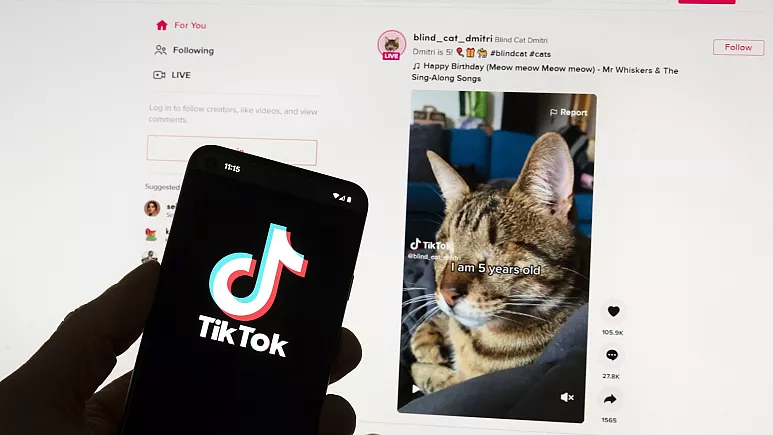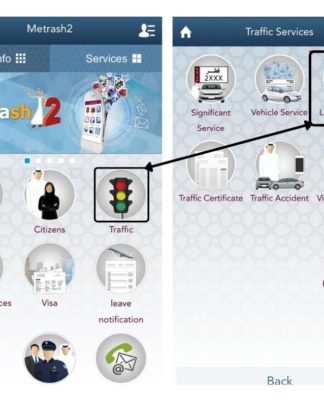EU Digital Services Act: 5 things that will change when you sign into your social media accounts
Google, Facebook, TikTok and other Big Tech companies operating in Europe are facing one of the most far-reaching efforts to clean up what people encounter online.
By Associated Press
Published on 25/08/2023 – 20:41
Share this article
The EU Digital Services Act officially came into force on Friday. Europeans will notice five changes when they log into their social media accounts.
Starting on Friday, Europeans will see their online lives change.
People in the European Union’s 27 member states can now alter some of what shows up when they search, scroll, and share on the biggest social media platforms like TikTok, Instagram, and Facebook and other tech giants like Google and Amazon.
That’s because Big Tech companies, most headquartered in the US, are now subject to a pioneering new set of EU digital regulations.
The EU Digital Services Act, which comes into force this week, aims to protect European users when it comes to privacy, transparency, and removal of harmful or illegal content.
Here are five things that will change when you sign on.
EU Digital Services Act: Tech companies face a reckoning in Europe as new rules come into force
1. You can turn off AI-recommended videos
Automated recommendation systems decide, based on people’s profiles, what they see in their feeds. Those can be switched off.
Meta, the owner of Facebook and Instagram, said users can opt out of its artificial intelligence ranking and recommendation systems that determine which Instagram Reels, Facebook Stories, and search results to show. Instead, people can choose to view content only from people they follow, starting with the newest posts.
Search results will be based only on the words they type, not personalized based on a user’s previous activity and interests, Meta President of Global Affairs Nick Clegg said in a blog post.
On TikTok, instead of being shown videos based on what users previously viewed, the “For You” feed will serve up popular videos from their area and around the world.
Turning off recommender systems also means the video-sharing platform’s “Following” and “Friends” feeds will show posts from accounts users follow in chronological order.
Those on Snapchat “can opt out of a personalised content experience”.
Algorithmic recommendation systems based on user profiles have been blamed for creating so-called filter bubbles and pushing social media users to increasingly extreme posts. The European Commission wants users to have at least one other option for content recommendations that are not based on profiling.
What is the EU Digital Services Act and how will it impact Big Tech?
2. It’s easier to flag harmful content
Users should find it easier to report a post, video, or comment that breaks the law or violates a platform’s rules so that it can be reviewed and taken down if required.
TikTok has started giving users an “additional reporting option” for content, including advertising, that they believe is illegal. To pinpoint the problem, people can choose from categories such as hate speech and harassment, suicide and self-harm, misinformation or frauds, and scams.
The app by Chinese parent company ByteDance has added a new team of moderators and legal specialists to review videos flagged by users, alongside automated systems and existing moderation teams that already work to identify such material.
Facebook and Instagram’s existing tools for reporting content are “easier for people to access,” said Meta’s Clegg, without providing more details.
3. You’ll know why your post was taken down
The EU wants platforms to be more transparent about how they operate.
So, TikTok says European users will get more information “about a broader range of content moderation decisions.”
“For example, if we decide a video is ineligible for recommendation because it contains unverified claims about an election that is still unfolding, we will let users know,” TikTok said.
“We will also share more detail about these decisions, including whether the action was taken by automated technology, and we will explain how both content creators and those who file a report can appeal a decision”.
Google said it’s “expanding the scope” of its transparency reports by giving more information about how it handles content moderation for more of its services, including Search, Maps, Shopping, and Play Store, without providing more details.
4. You can report fake products
The DSA is not just about policing content. It’s also aimed at stopping the flow of counterfeit Gucci handbags, pirated Nike sneakers, and other dodgy goods.
Amazon says it has set up a new channel for reporting suspected illegal products and content and also is providing more publicly available information about third-party merchants.
The online retail giant said it invests “significantly in protecting our store from bad actors, illegal content and in creating a trustworthy shopping experience. We have built on this strong foundation for DSA compliance”.
Online fashion marketplace Zalando is setting up flagging systems, though it downplays the threat posed by its highly curated collection of designer clothes, bags, and shoes.
“Customers only see content produced or screened by Zalando,” the German company said.
“As a result, we have close to zero risk of illegal content and are therefore in a better position than many other companies when it comes to implementing the DSA changes”.
5. Your kids won’t be targeted with digital ads
Brussels wants to crack down on digital ads aimed at children over concerns about privacy and manipulation. Some platforms already started tightening up ahead of Friday’s deadline, even beyond Europe.
TikTok said in July that it was restricting the types of data used to show ads to teens. Users who are 13 to 17 in the EU, plus Britain, Switzerland, Iceland, Norway and Liechtenstein no longer see ads “based on their activities on or off TikTok”.
It’s doing the same in the US for 13 to 15-year-olds.
Snapchat is restricting personalized and targeted advertising to users under 18.
Meta in February stopped showing Facebook and Instagram users who are 13 to 17 ads based on their activity, such as following certain Instagram posts or Facebook pages. Now, age and location are the only data points advertisers can use to show ads to teens.






























